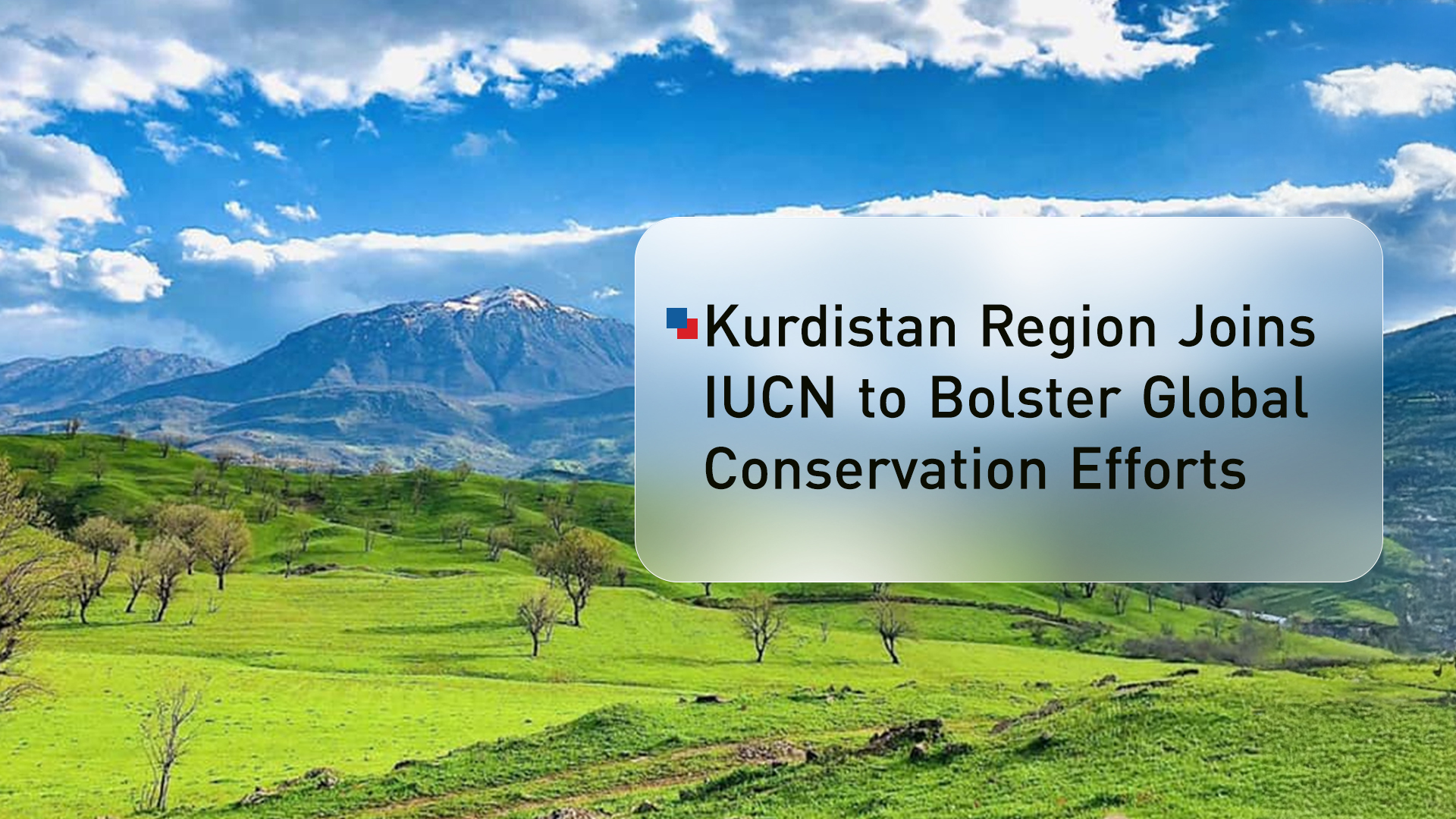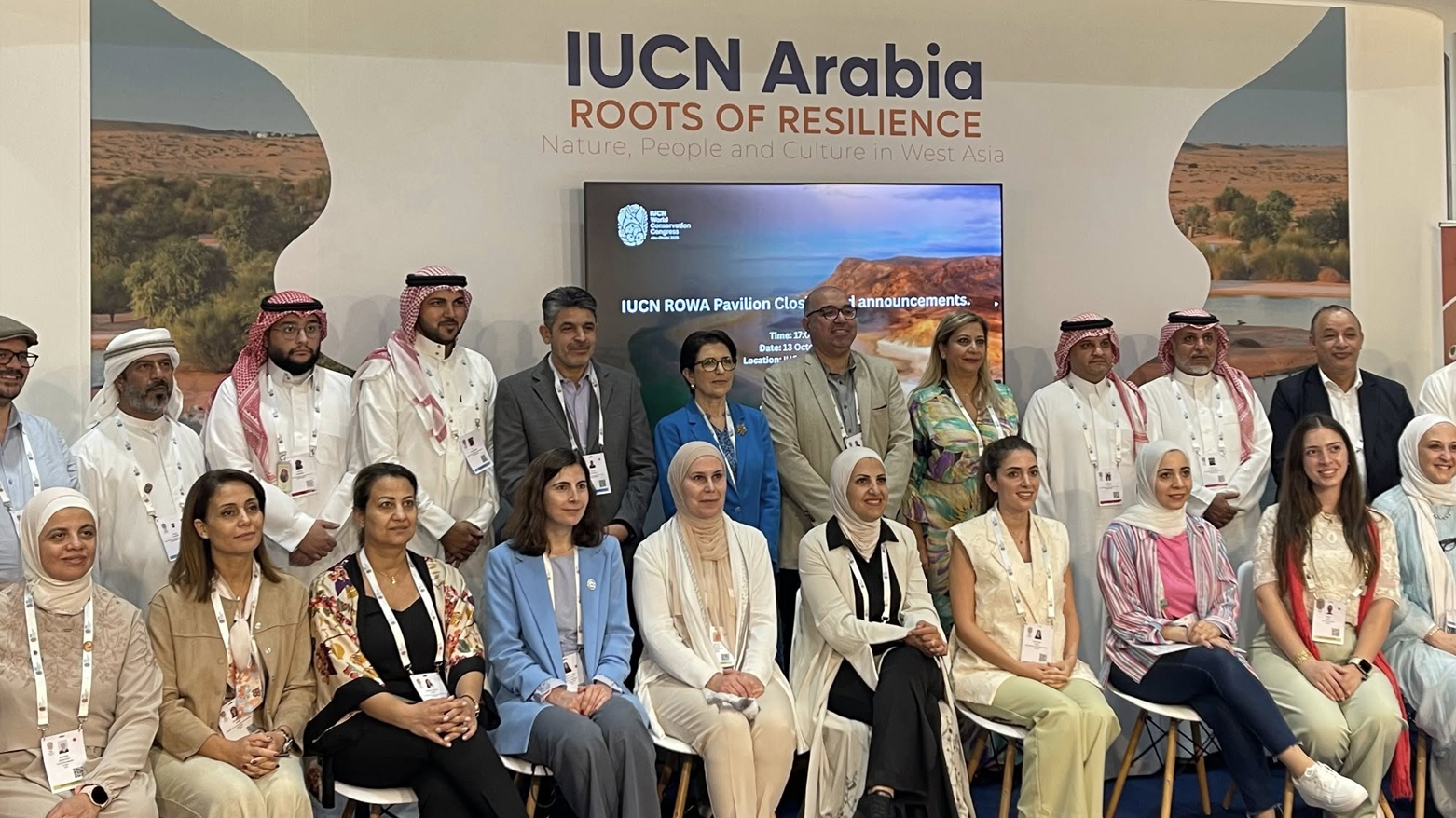Kurdistan Region Joins IUCN, Cementing Global Role in Nature Conservation
The Kurdistan Region has officially joined the IUCN, a major step in its commitment to protecting its rich biodiversity and advancing sustainable development.

ERBIL (Kurdistan24) - In a landmark achievement that formally recognizes its growing commitment to environmental stewardship and places it among the global community of nations dedicated to protecting the planet's natural heritage, the Kurdistan Regional Government (KRG) has officially become a member of the prestigious International Union for Conservation of Nature (IUCN).
The historic announcement was made during the IUCN World Conservation Congress in Abu Dhabi, a major international gathering of governments, scientists, and environmental leaders. This new membership is not merely a symbolic gesture; it is a strategic and pivotal step that will connect the Kurdistan Region to a vast global network of expertise, strengthen its environmental policies, and open the door to new international partnerships aimed at safeguarding its rich and unique biodiversity for future generations.
The welcoming of the Kurdistan Region into the IUCN family was met with enthusiasm and optimism by the organization's leadership. Dr. Hany al Shaer, the IUCN’s Regional Director for West Asia, hailed the new membership as a significant development for conservation efforts across the entire region.
“We are delighted to welcome the Kurdistan Regional Government into the IUCN family," Dr. al Shaer stated, according to a press release from the KRG's Department of Media and Information. "This membership marks an important milestone in strengthening nature conservation efforts in Iraq and the wider region. The Kurdistan Region’s rich natural heritage and its growing environmental leadership offer great potential for impactful partnerships. Together, we will work to safeguard biodiversity, build resilience to climate change, and support sustainable development for communities and ecosystems alike.”
Representing the KRG at the World Congress in Abu Dhabi, Bayan Sami Abdul Rahman, the Senior Advisor to the Prime Minister for Foreign Affairs and Climate Change, articulated the profound significance of this new partnership.

“Joining the IUCN is a milestone for the Kurdistan Regional Government," she declared. "It reflects our government’s growing commitment to environmental stewardship, biodiversity protection, and the sustainable use of our natural resources.”
Ms. Abdul Rahman emphasized that this commitment is a core and deeply held value of the Kurdish people and their leadership. “We are determined to protect our mountains, rivers, and forests for future generations, and to contribute to the global effort against climate change,” she said.
This vision, the statement from the Department of Media and Information noted, is one that is personally championed by KRG Prime Minister Masrour Barzani, who is "committed to preserving Kurdistan’s biodiversity and for the KRG to play its role in nature conservation in Iraq, regionally and globally."
Membership in the IUCN, the world’s largest and most diverse environmental network, is a game-changer for the Kurdistan Region.
Founded in 1948, the organization connects more than 1,400 member organizations, including governments, non-governmental organizations (NGOs), and leading research institutions, across more than 170 countries. This vast network is united in its mission to conserve the planet’s natural heritage and to ensure that all development is both sustainable and equitable.
For the Kurdistan Region, this partnership will unlock a wealth of opportunities and resources. It will enable the KRG to strengthen its environmental policies and legislation, bringing them in line with the highest international standards.
It will facilitate direct collaboration with a global community of experts on a wide range of critical issues, from biodiversity protection and reforestation to advanced water and land management techniques.
Furthermore, membership provides access to crucial capacity-building programs and direct support for conservation and climate resilience projects, and it will help to promote and develop the region's ecotourism and green investment potential as a key part of its broader development strategy.
This new international partnership is a recognition of the Kurdistan Region's immense and unique natural heritage. The region is home to some of Iraq’s most important and biodiverse ecosystems and wildlife habitats.
Its majestic mountain ranges, ancient oak forests, and pristine river valleys support a remarkable diversity of life. These landscapes are home to iconic and endangered species, such as the elusive Persian Leopard, which, according to the KRG's statement, still roams the forests of the Barzan region, Qara Dagh, and other mountain areas, and the Kurdistan newt, both of which are on the IUCN's own Red List of endangered species.
The botanical diversity of the region is equally impressive. The Kurdistan Region is a key part of the unique Zagros Mountains ecosystem, which supports more than 2,000 species of plants, including a wealth of endemic wildflowers, ancient oak and pistachio trees, and a variety of medicinal herbs that have been used by local communities for centuries.
The region also plays a critical role as a part of the Eastern Mediterranean flyway for migratory birds, with over 350 different bird species having been recorded, including majestic storks, eagles, and a wide variety of smaller birds like wheatears.
The KRG has already taken significant steps to protect these ecological treasures and has expressed its hope to officially designate several key areas as protected national parks and reserves.
These include the tribally protected Barzan Nature Reserve, a pioneering example of community-led conservation; the Halgurd-Sakran National Park, which encompasses some of the region's most stunning and rugged mountain landscapes; and the Qara Dagh Reserve.
Together, these areas safeguard thousands of hectares of vital forest, wetland, and mountain habitats that are essential for the survival of both wildlife and the local communities that depend on them. As the KRG's statement noted, "These landscapes are not only ecological treasures but also sources of livelihood, culture, and identity for the people of Kurdistan."
Membership in the IUCN will provide the KRG with the international expertise and support needed to strengthen the protection of these areas and to align its conservation strategies with global best practices.
The decision to join the IUCN is a natural and powerful extension of the KRG's existing and expanding environmental initiatives, which include comprehensive climate adaptation planning and major water management reforms. The new membership will reinforce these domestic efforts and open the door to a new and exciting chapter of international partnerships for environmental restoration and sustainable growth.
As Ms. Abdul Rahman powerfully articulated in Abu Dhabi, this is a moment of both opportunity and responsibility.
“This membership signals to the world that the KRG is ready to be a responsible partner in protecting our shared planet,” she said. “We look forward to learning from others, sharing our experiences, and contributing to a greener and more resilient future.”
The Kurdistan Region, long known for its resilience in the face of political and military adversity, is now poised to become a regional leader in a different kind of struggle: the global fight to protect the natural world.